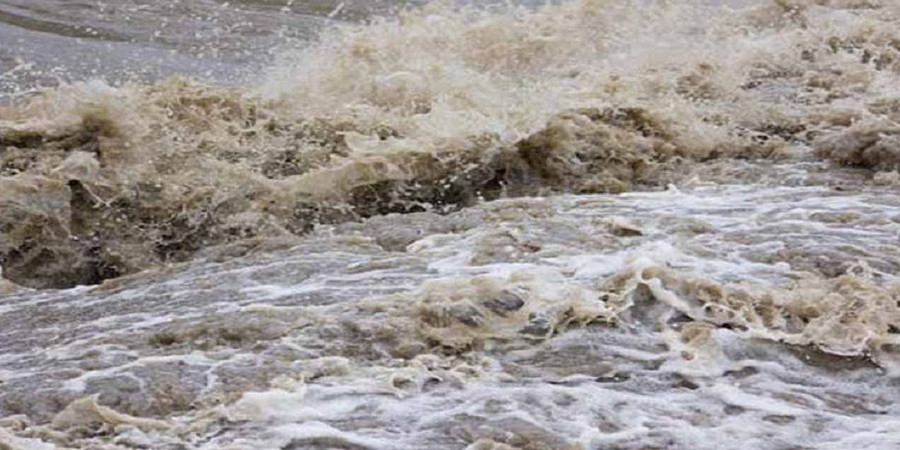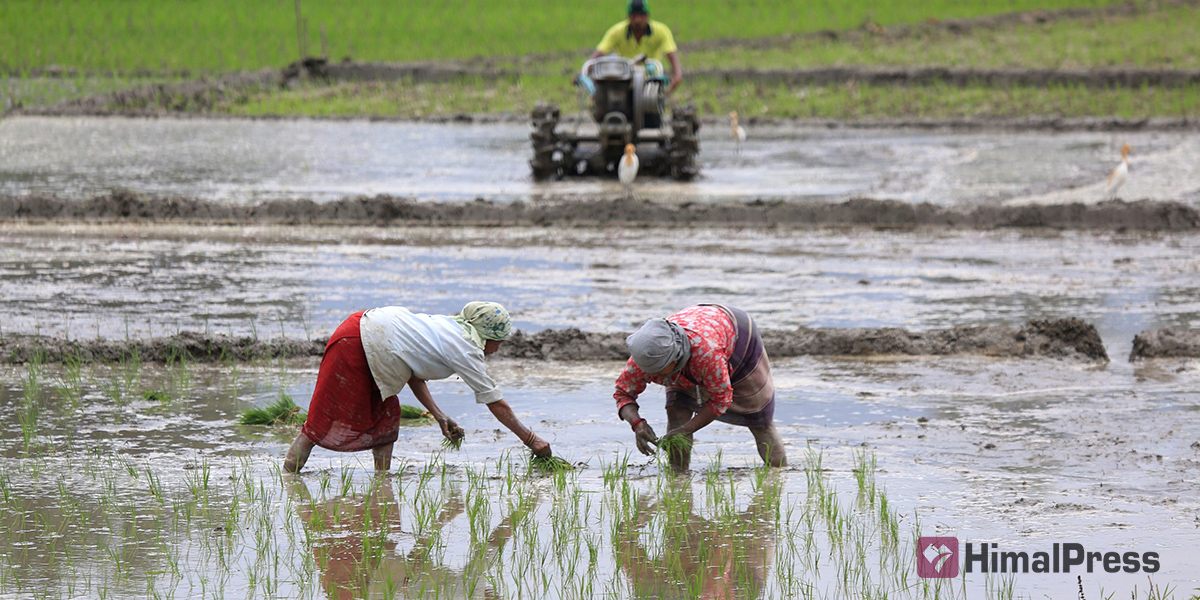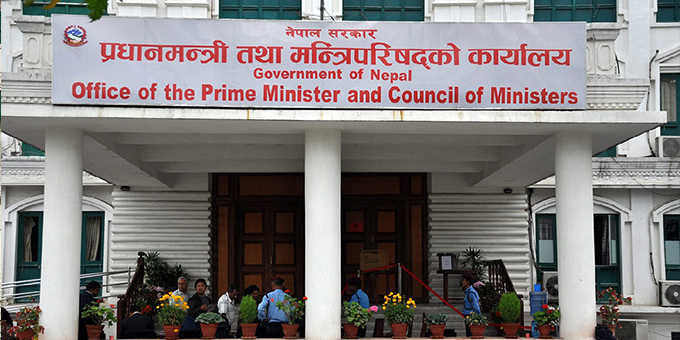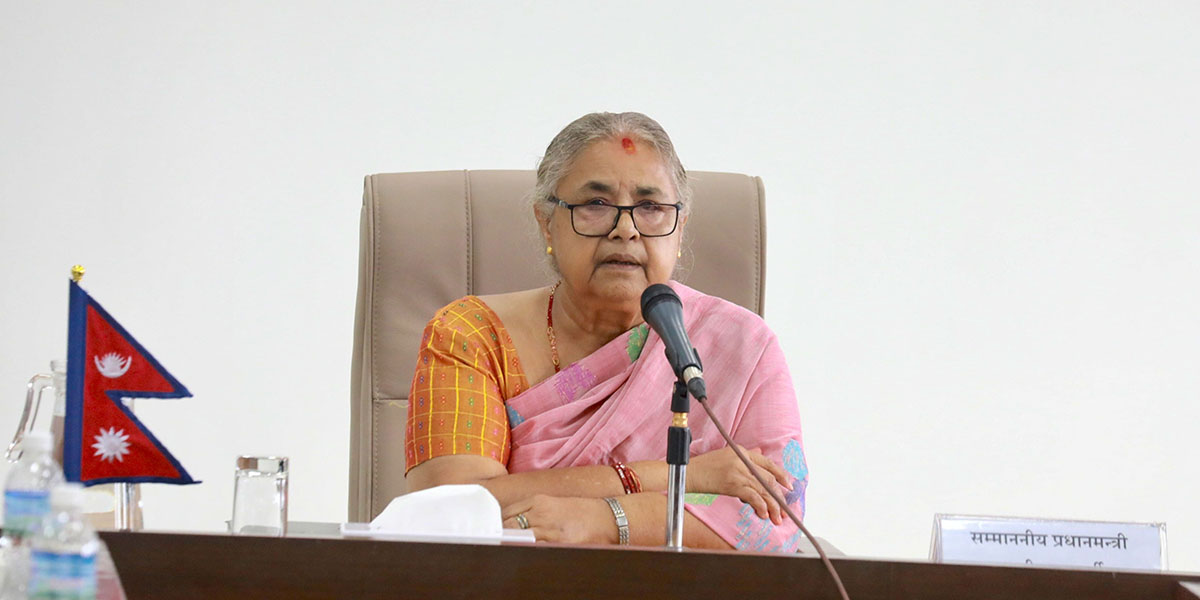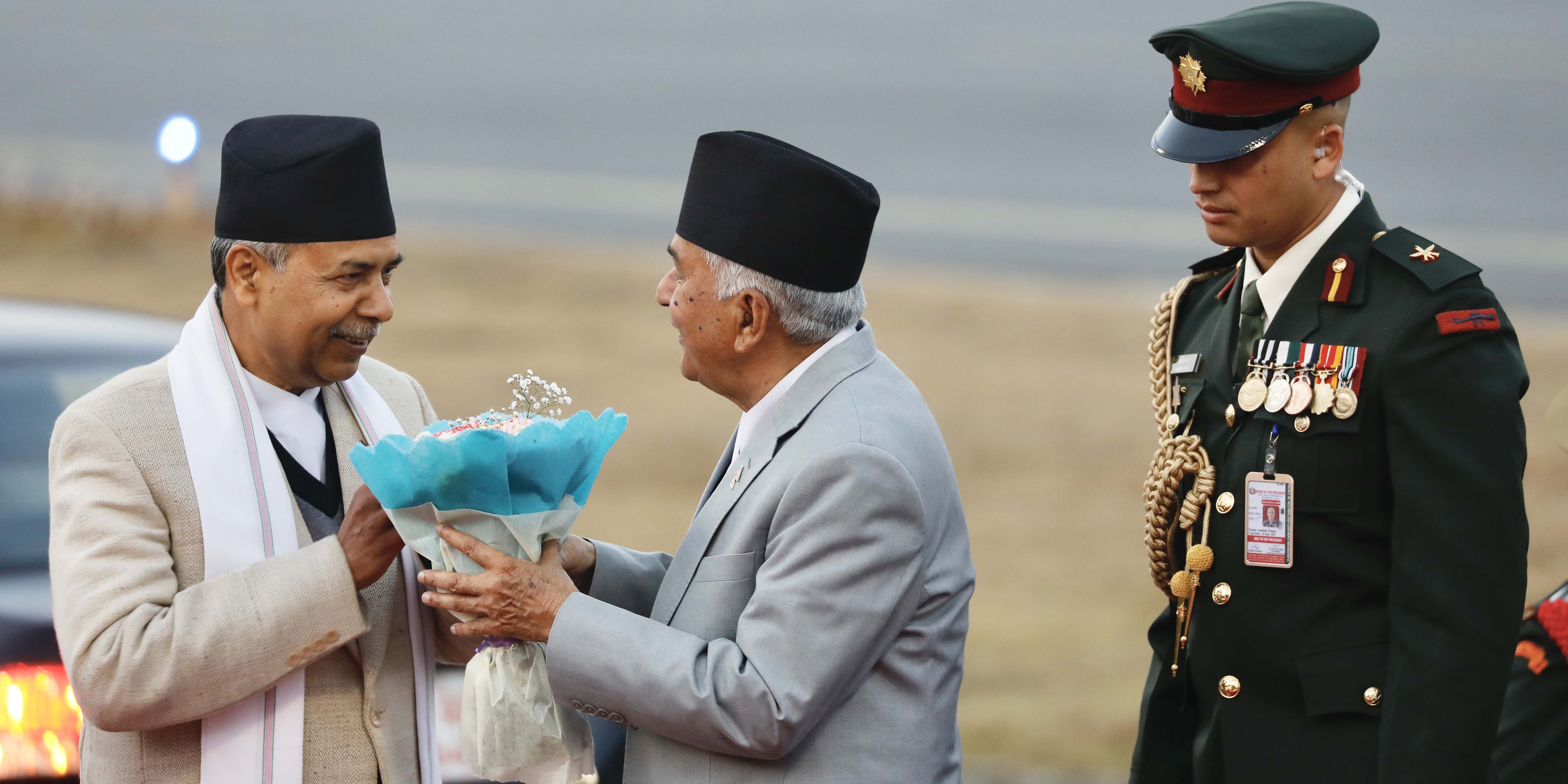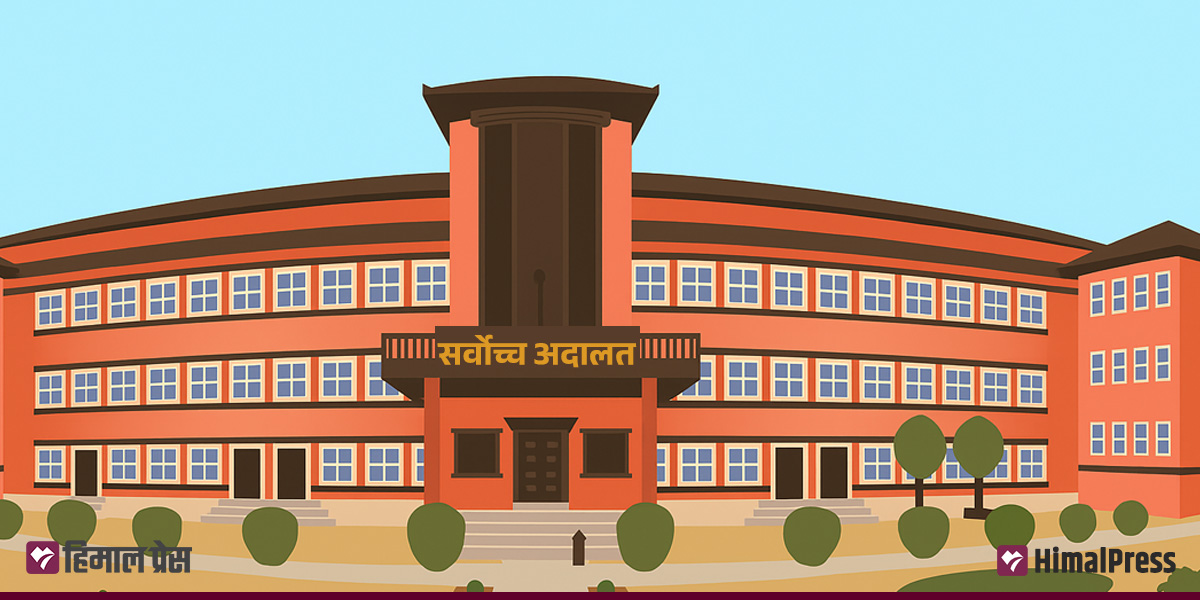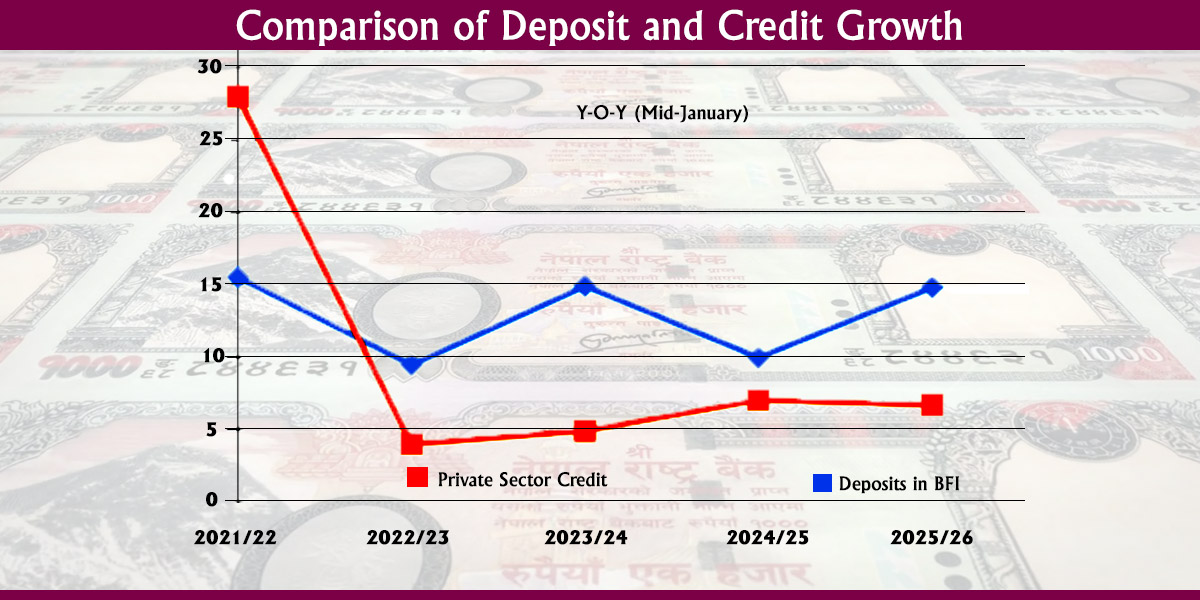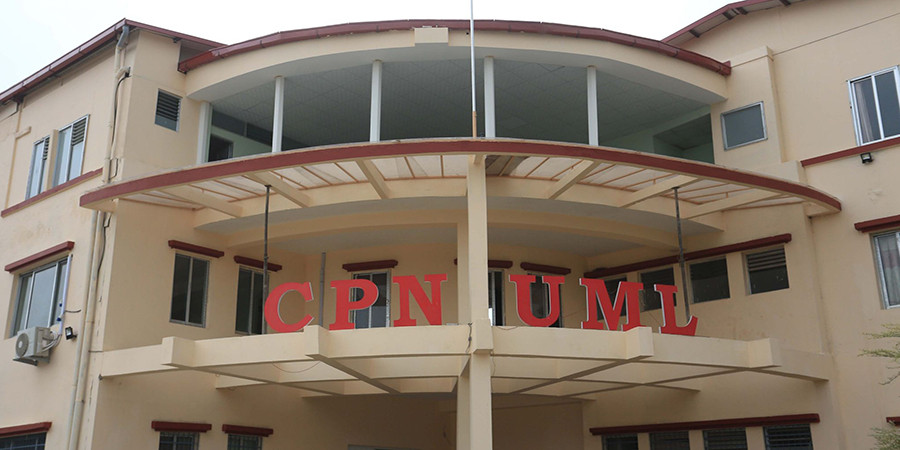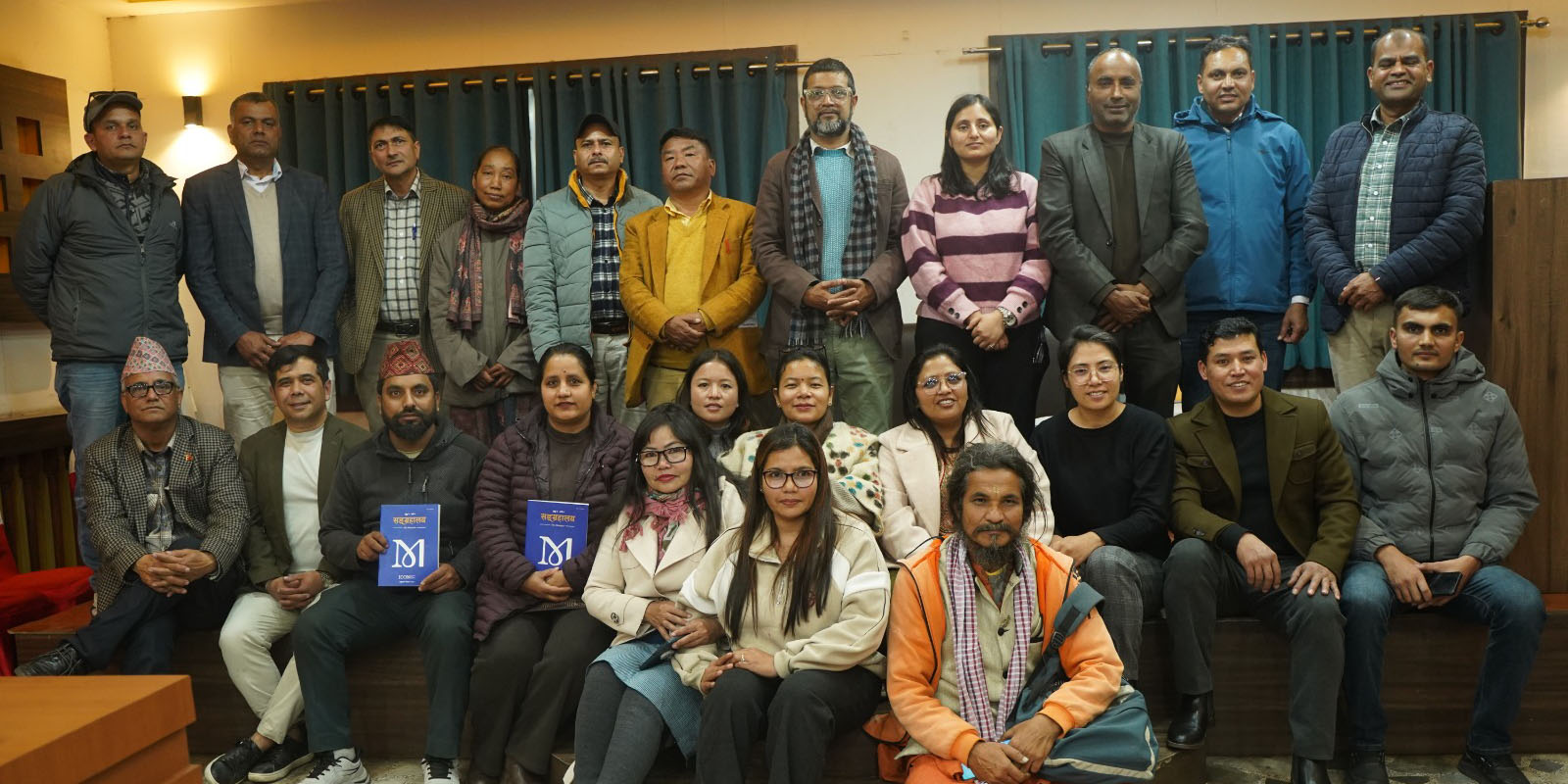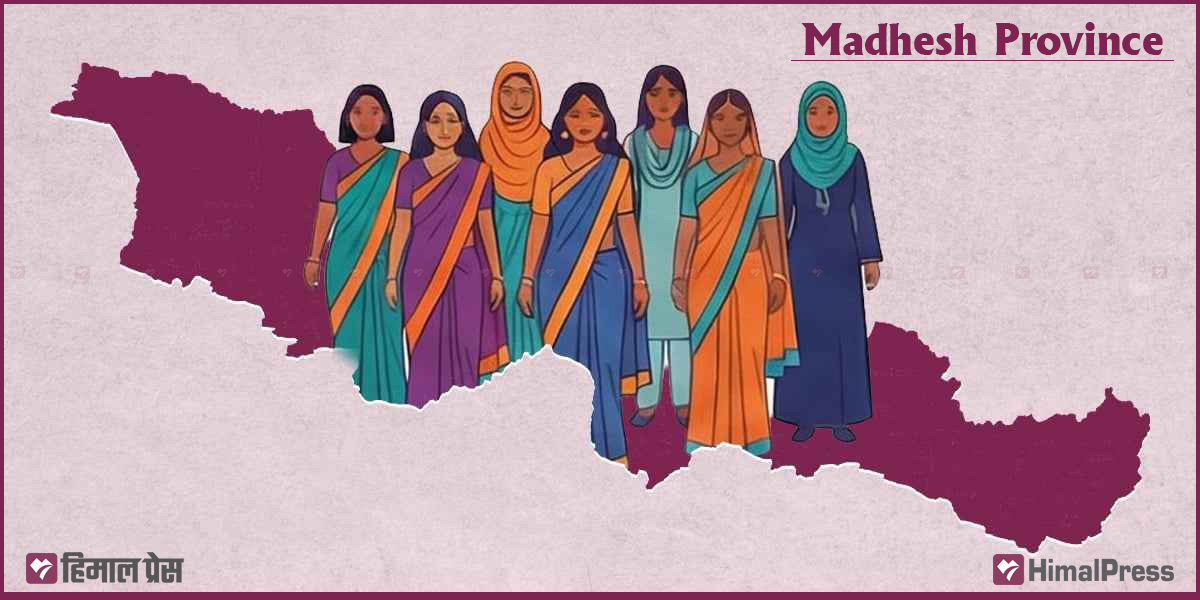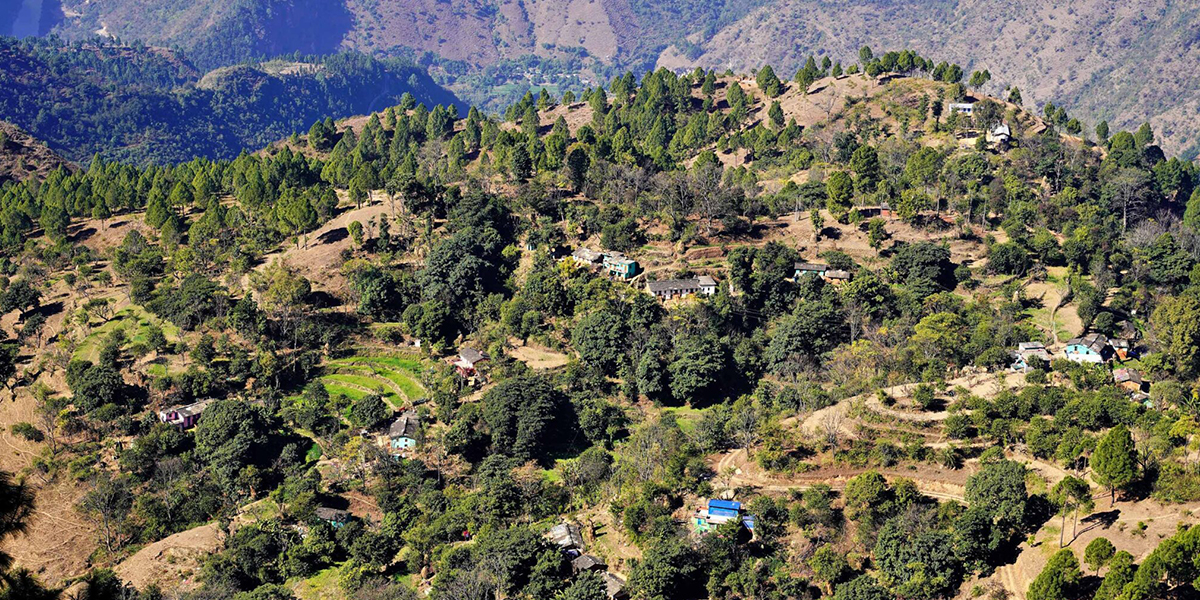 Dhauliya village in Baitadi. Photo Courtesy: Center for Investigative Journalism
Dhauliya village in Baitadi. Photo Courtesy: Center for Investigative Journalism
DHANGADHI: The people of Sudurpashchim Province are facing a serious issue of wildlife menace. Ganesh Palle from Amargadhi Municipality-3 in Doti Ghatal, Dadeldhura lost his life in a wild boar attack about a month ago. Similarly, wild boars destroyed the entire maize crop planted on 10 katthas of land belonging to Sunita Sarki from Bedkot Municipality-5 in Kanchanpur. In another incident, Jaya Bhandari from Bedkot Municipality-7 was unable to harvest paddy as the crop, which was planted in 5 katthas of land, was destroyed by wild elephants.
These are just a few examples of the severe consequences of wildlife attacks in the region. Not only are wild animals causing damage to crops, but they are also posing a threat to human life and property.
The agricultural land spreading over 30 ropanis in Dhaulyali village, located in Dasharathchand Municipality-8 of Baitadi, has remained barren for the past few years due to the menace of monkeys from nearby forests. Bhawani Singh Bohora, a farmer from the village, stated that he has not planted any crops for the past five or six years as the monkeys destroy everything. Consequently, he has to purchase maize, wheat, and pulses from the market.
“Due to the monkey problem, around 100 families in the village have migrated to other areas. There are only around 50-60 families in the village now. The monkey menace has not only affected agricultural productivity but has also caused people to leave their homes and livelihoods in search of a better life elsewhere,” he added.
Bohora is not the only farmer affected by the menace of monkeys. Dilip Singh Mouni, another local farmer in the area, abandoned farming 10 years ago due to the destruction caused by monkeys to his crops. “There is no point in cultivating crops as monkeys destroy them before they are ready for harvest,” he said. “We have to buy everything from food grains to pulses and vegetables from the market,” he aded.
Amber Thapa from Tripura in Dasharatchand Municipality-8 also stated that there is no conducive environment to grow crops. He owns 135 ropanis of land but has been able to cultivate on some land strips only. Thapa, a former people’s representative, mentioned that the monkey population seems to be doubling every year, making it impossible to protect farms from their destruction. “As a result, many families in my locality have stopped farming altogether,” he added.
If crops are destroyed by wild animals, the offices of national parks and conservation areas provide compensation on the recommendation of the concerned division forest office.
The monkey problem is not limited to a particular area in Dasharathchand Municipality. Ajab Bahadur Pandey, the municipality’s spokesperson, confirmed that all wards are affected by the monkey menace. The problem is particularly severe in the Jhulaghat area, he said. “The municipality is holding discussions with stakeholders to find a solution to the problem,” Pandey added.
If crops are destroyed by wild animals, the offices of national parks and conservation areas provide compensation on the recommendation of the concerned division forest office. Shuklaphanta National Park Office provides compensation through division forest offices in Kanchanpur, Baitadi, Kaiali, and Achham. Similarly, Api Nampa Conservation provides compensation through the Division Forest Office in Darchula, while Khaptad National Park provides compensation through division forest offices in Bajhang, Bajur, and Doti.
According to Shuklaphanta National Park Office, it provided the highest compensation for crop damage caused by wild animals through the Division Forest Office in Accham in the fiscal year 2021/22. The national park office distributed Rs 3.43 million through the office during the year. In total, the national park office released Rs 13.43 million in compensation for crop damages caused by wild animals in 2021/22, and it has already distributed Rs 8.41 million in the current fiscal year.
The national park offices provide compensation for damages caused by a range of wild animals, including elephants, rhinoceros, tigers, bears, leopards, snow leopards, wild boars, wolves, wild dogs, deer, alligators, crocodiles, gaurs, and pythons, as per the Relief Assistance Guidelines, 2013.
In case of injuries caused by wild animal attacks, the national park office provides compensation of up to Rs 20,000. In case of death caused by such attacks, the families of the victims are eligible for compensation of Rs 1 million.
If livestock is lost due to wild animal attacks, the national park office provides compensation of Rs 30,000 in the case of adult buffaloes and cows, and up to Rs 10,000 in the case of other animals. For damage to crops caused by wild animals, up to Rs 10,000 is provided as compensation.




